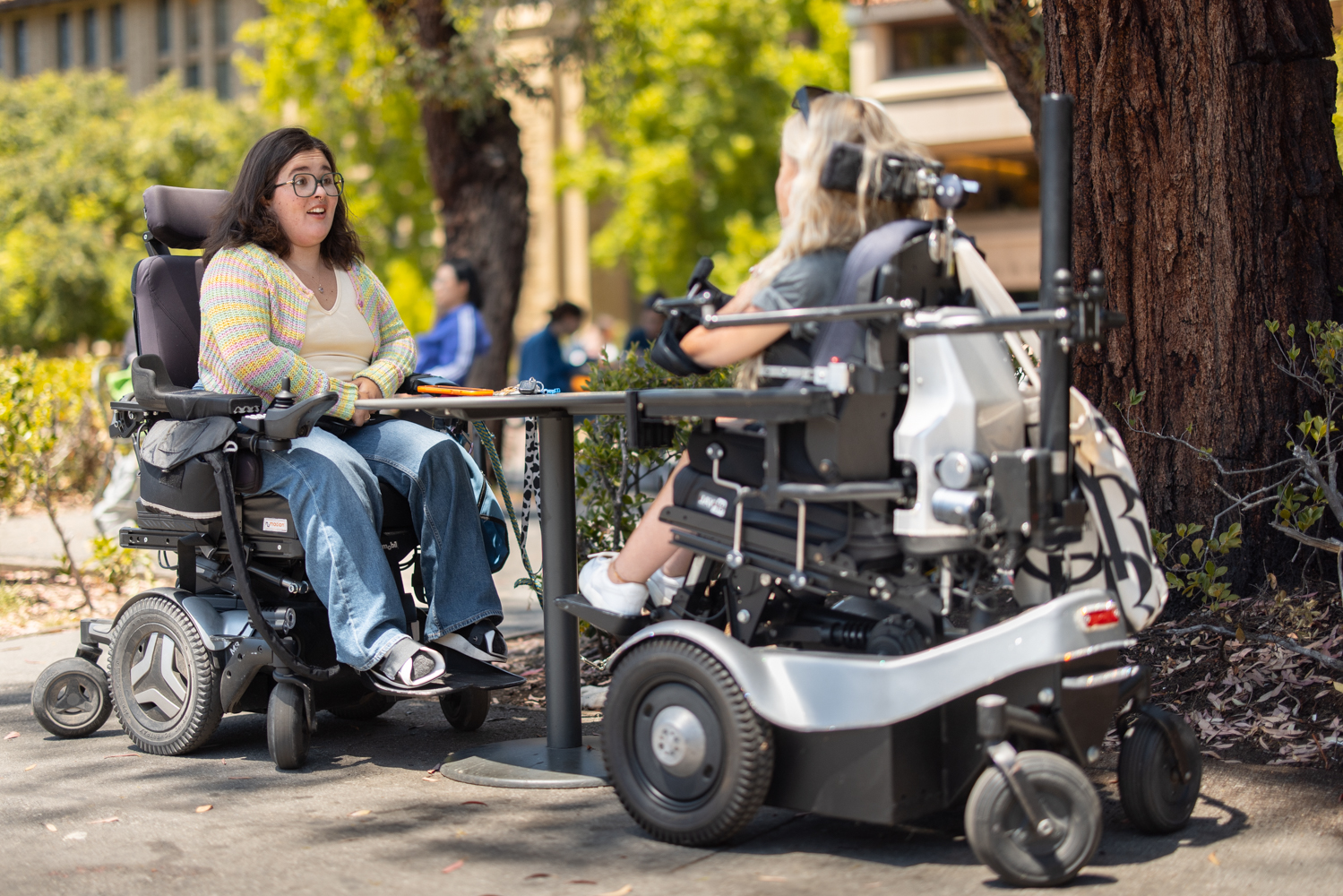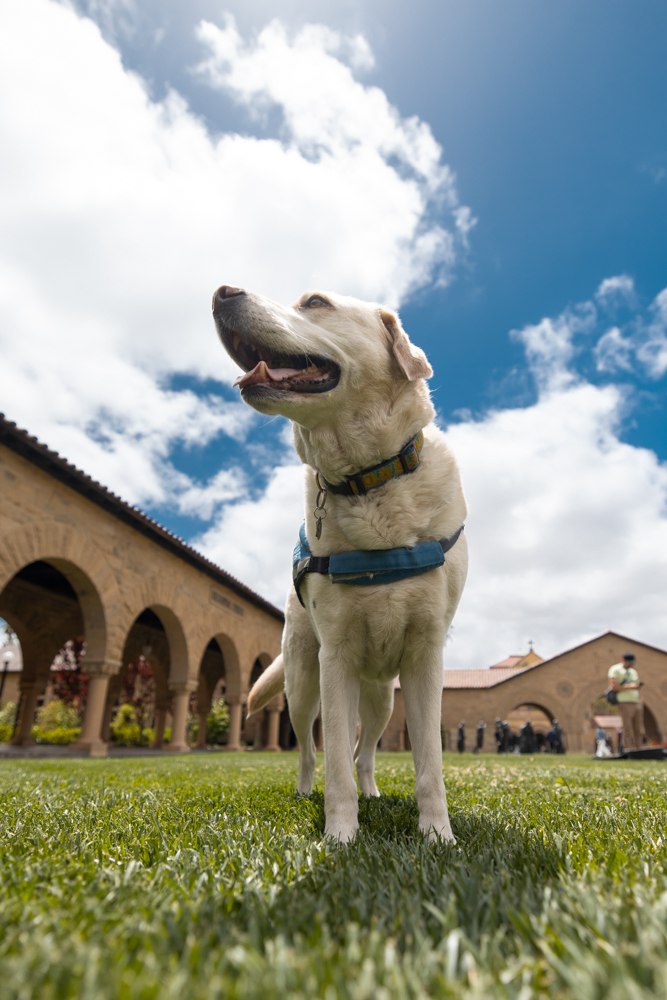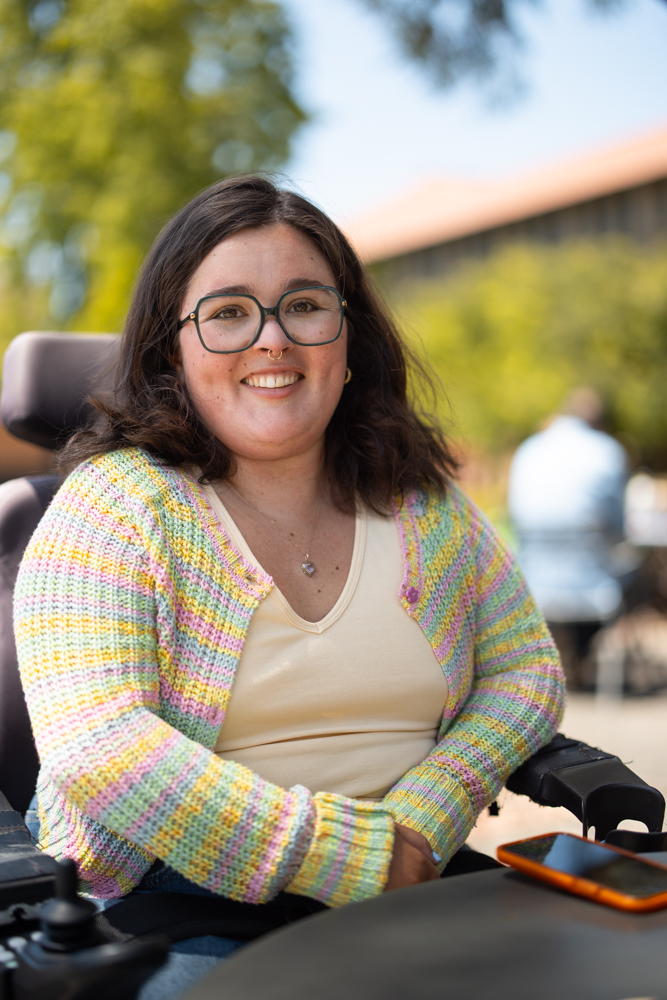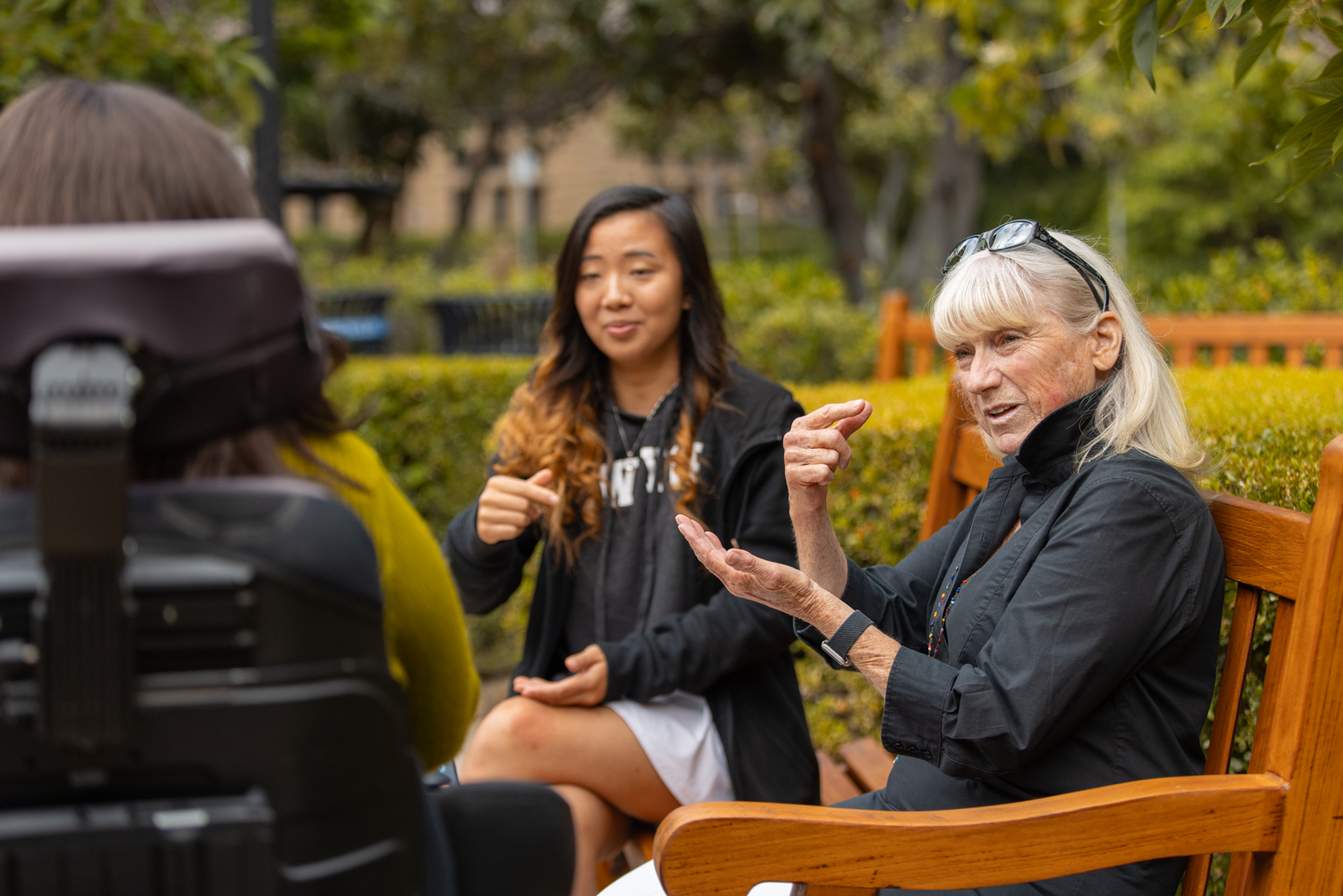Most kids enjoy watching TV and movies, but when she was young, Sylvia Colt-Lacayo noticed she was particularly fascinated with on-screen stories. She loved discussing films with her friends and binging series like Veronica Mars. Media offered an escape when life was hard.
When she started watching Glee, she was thrilled to see a character who used a wheelchair like her – until she learned the role was played by an actor who was not disabled.
Andrew Brodhead, Harry Gregory, Kurt Hickman, and Adrienne Kemp-Rye
“I remember feeling so heartbroken and betrayed, for no reason other than the fact that I felt seen for once as a 10-year-old watching Glee, and the power of that,” says Colt-Lacayo, who has a neuromuscular disorder called Bethlem myopathy.
Now, Colt-Lacayo is graduating from Stanford with a degree in film and media studies and is heading to Hollywood with a passion for increasing disability representation and diversity in general.
“I think people sometimes get stuck on the idea of ‘diversity for diversity’s sake,’” she said. “But I think representation matters. I also think that diverse storytelling is what is most compelling.”

Colt-Lacayo wasn’t planning on applying to Stanford until she met a fellow wheelchair user – Tilly Griffiths, ’22 – who helped her realize that it could be a reality. | Andrew Brodhead
Representation shaped Colt-Lacayo’s path to Stanford. As a disabled Latina girl growing up in Oakland, she struggled to imagine going to college, in part because she never saw adult wheelchair users in the media. In high school, she met another Stanford student who was also a wheelchair user at a conference. Suddenly, a new story felt possible.
When she arrived at Stanford with her service dog, Nicola, Colt-Lacayo knew she was often the first visibly disabled student her professors and peers had interacted with. Her parents had taught her to advocate for herself, and while she doesn’t claim the label “activist,” she asks for what she needs.

Colt-Lacayo has had Nicola – her service dog who helps her feel more comfortable with being alone – since she started her frosh year. | Andrew Brodhead
“Yes, there’s something that is in my DNA that makes my body different from other people’s. But really, what makes me disabled is that people treat me differently, and I do not have equal access to resources,” she said.
She brought this perspective to her Stanford experience. For her senior thesis, she wrote a screenplay examining how growing up with a disability impacts one’s relationship with oneself and one’s understanding of the world. Colt-Lacayo aims to become an agent for screenwriters and film directors, and the project gave her a deeper understanding of what makes a good script.

Yes, there’s something that is in my DNA that makes my body different from other people’s. But really, what makes me disabled is that people treat me differently, and I do not have equal access to resources.”
She also gained behind-the-scenes experience by consulting on a script by two other writers about a disabled girl who can’t afford college due to the cost of caregivers and so plans a heist with her friends.
Beyond the big screen, Colt-Lacayo studies American Sign Language and is a member of the Stanford Shakespeare Company. She produced the Shakes’ winter 2023 production of The Two Noble Kinsmen – an experience that taught her about the value of creative community.

Colt-Lacayo took American Sign Language with lecturer Cathy Haas during her senior year at Stanford. | Andrew Brodhead
After Commencement, she’ll start her career in Los Angeles as an assistant to an agent at United Talent Agency, where she interned in 2023.
Colt-Lacayo is proud to be graduating from college as a disabled person and hopes that sharing her story gives others the example she wished for when she was young.